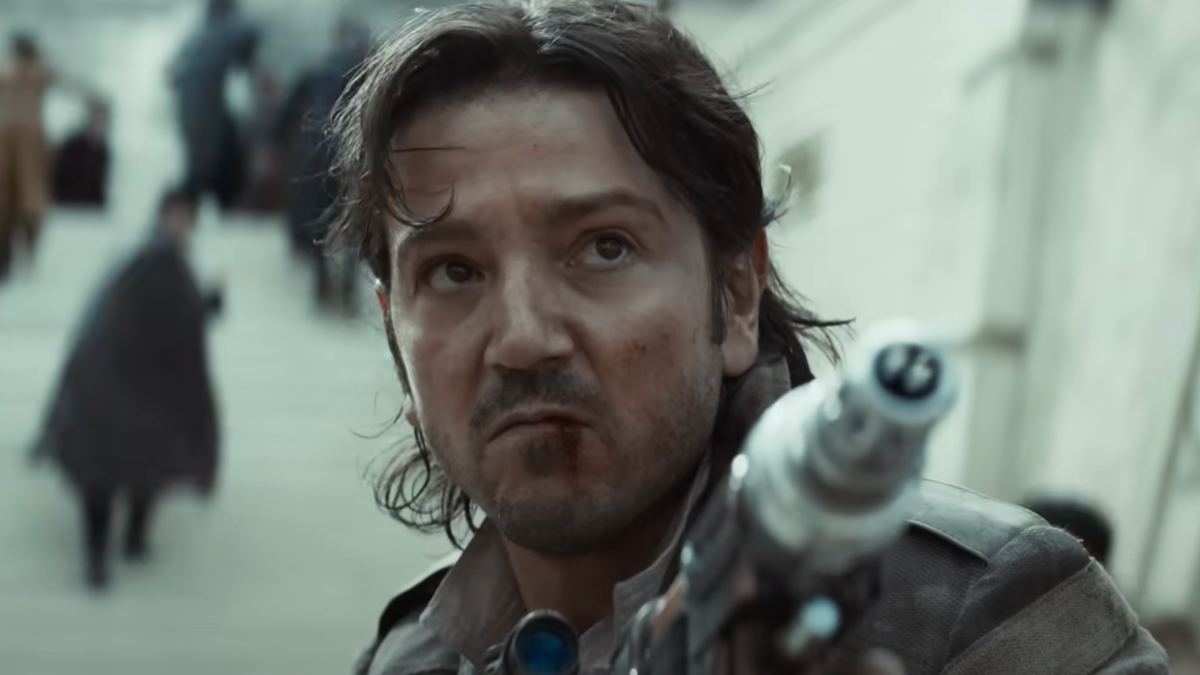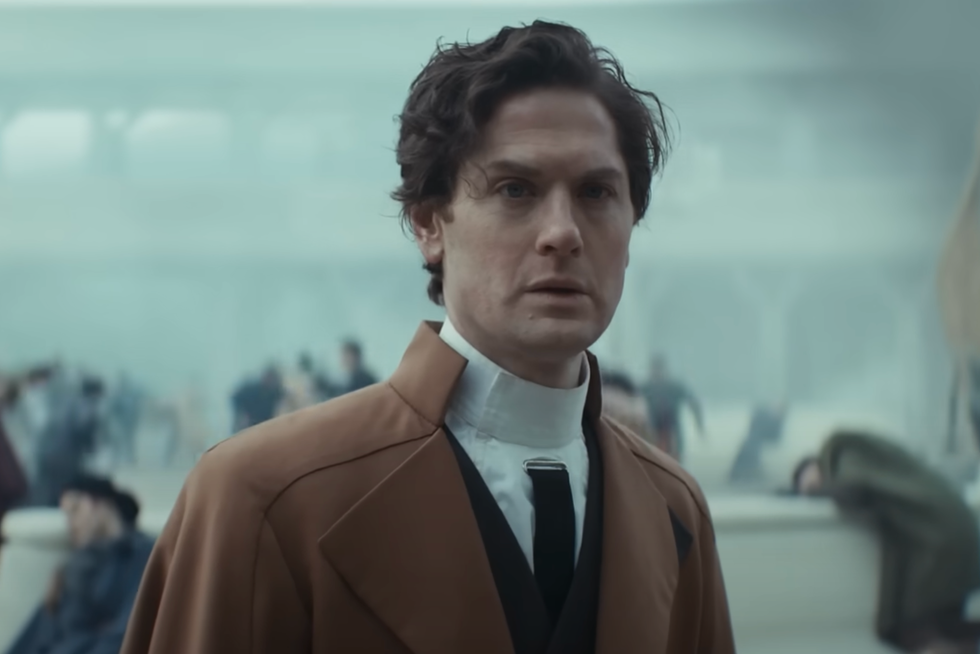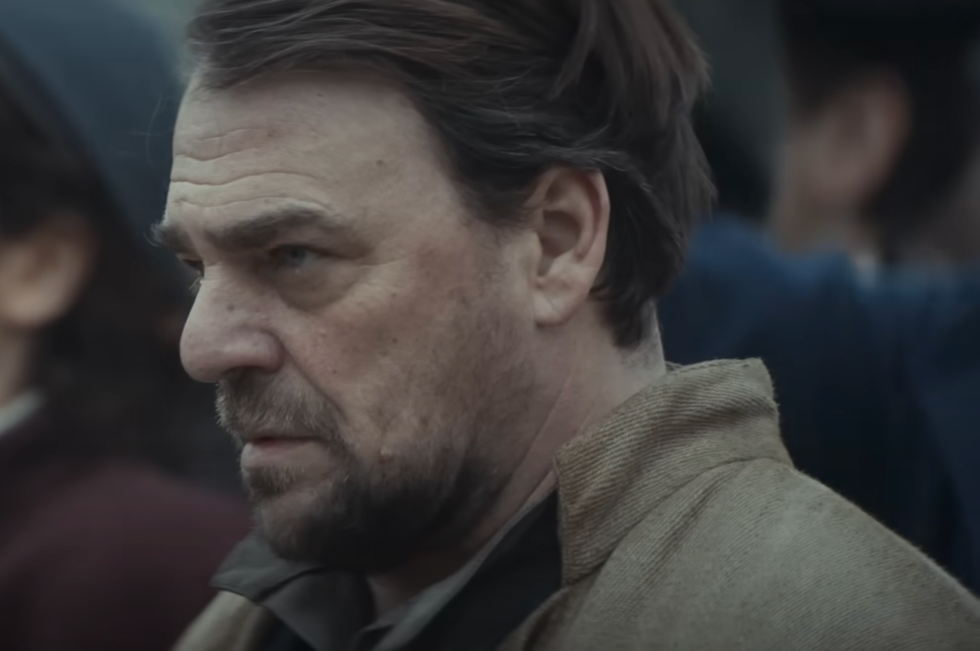<em>Andor</em> Season 2, Episode 8 Recap


Looking for a recap of season 2, episode 7? Join the rebellion.
As far as I'm concerned, 2025 already has three generational episodes of television. In February, we saw Severance's masterful "Chikhai Bardo," which not only lifted the curtain on the show's biggest mysteries, but did so while upending the visual language of the series. Then, in March, The Pitt dropped its gutting twelfth episode—and it's the one that hard-pivoted the series from a show about healthcare to a show about America.
Now, as of Tuesday night, we have season 2, episode 8 of Andor: "Who Are You?"
In so many ways—spectacle, budget, major character deaths—this feels like the series finale of Andor. But just like The Pitt, Andor knows damn well that stories of hardship, pain, and resistance don't end when everyone puts their guns down. No matter how you spin it, "Who Are You?" is definitively the best episode of Andor thus far. Hell, it's the best Star Wars anything since 1980, when an entire generation packed into theaters for The Empire Strikes Back. (Though I have a serious soft spot for Return of the Jedi, but that's a different piece.)

Funny enough, just like the two other episodes I shouted out above, "Who Are You?" opens with a shot that tells you that what you're about to watch is, well, different. After a sweeping view of the beautiful Ghorman capital city, Palmo—which we know will tragically go down in flames—we see Cassian Andor loading his firearms. Then, Andor cuts to the legions of Imperial goons deploying onto the city square; meanwhile, Imperial-leaning news stations are already on the ground, ready to cover whatever's about to happen... as if they don't already know what's coming.
Breaking news! They absolutely know what's coming. I've already written about the heavy subtext here—that Andor is riffing on the Fox News-ification of the way we take in information—but episode 8 takes it to a truly horrifying level. Andor already told us that Dedra aimed to secretly manipulate rebel Ghorman from afar, but seeing the culmination of her plans is truly horrifying. Cut to Carro Rylanz delivering Andor's obligatory utterance of, "It's a trap!" He sees the future of his people in an instant: The Empire wanted to egg on their rebellion. Then, they could paint a galaxy-wide narrative that the Ghormans attacked the Imperial soldiers, unprovoked. Or, as Imperial News will tell us later, The imperial martyrs of Ghorman.
As for the massacre itself? Not to make light of a conflict that feels deeply relevant to what's going on elsewhere in the world—many have pointed out Andor's parallels to the Israel-Palestine conflict—but it's incredible that series creator Tony Gilroy managed to stage a set-piece this massive. There were times in the battle that genuinely rivaled anything Star Wars has shown us on the big screen this decade. Droids smack helpless citizens against walls. Explosions? Left and right. I know blood is at a minimum, but I have a hard time remembering Star Wars wrestling with this much violence. And on Disney+ of all places!
Unfortunately, we do have to address the fall of Andor's star-crossed lovers, Dedra and Syril. Something that Kyle Soller, who plays Syril, told The New York Times prior to the season really stuck with me. Referencing early Andor scripts, he said, "It was like a Pinter play being written out in the Star Wars universe." The scene between Syril and Dedra—when he grabs her neck and damn near begs for the truth about why they're in Ghorman—feels ripped from the stage. "We wanted to be together," Dedra seethes. "You didn’t seem to mind the promotions." Syril leaves her, forever, with just this: "Good luck, Dedra."
Then, Syril heads directly into a scene that feels like watching Soller win the Emmy for Best Supporting Actor in real time. It's as if he saw the folly of his entire life—the ladder-climbing, the desire for power, and the search for the love he never knew—in one single moment. He's not radicalized, exactly, by learning the true depth of the Empire's capacity for evil. Syril just finally comes to terms with the lies he told himself in his failed, lifelong scramble for peace. When he sees Cassian and lunges for him, Syril isn't trying to capture him in hopes of winning another promotion. After reading Soller's Variety interview, I feel like we're witnessing pure heartbreak.
"Ultimately, that’s someone who has been lied to their entire life, who drank the Kool-Aid since they were a kid. He opened up himself to a new way of thinking with Rylanz and intimacy with Dedra. He has that betrayed, and then to see this person, this totem, that represents everything he has not been able to achieve on that path in Cassian, and then tack on the riot and massacre, he has a very personal explosion and an exorcism of all the bad things the Empire has done to him."
This sounds so simplistic—and it's something I've felt from just about the very first episode of Andor—but it's wild to think how much recent Star Wars storytelling relied on paper-thin stakes related to past lore. The Mandalorian hinges Grogu's entire mystery on the fact that he was at Order 66 (callback) and he looks like every '80s kid's favorite plushie. Plus, the prequel and the sequel trilogies were so deeply lost in the Skywalker of It All that only a few standout characters emerged with any complexity. (Hello, Mace Windu and Darth Maul.)
Sure, Andor is a prequel that draws a straight line to A New Hope's inciting event, which is retold in Rogue One. But Andor set up entirely new characters, motivations, and real-world subtext. I don't care about Syril because he's twenty degrees separated from Emperor Palpatine. I care about him because he's plagued by the same sort of anger and loneliness that face young men today. His death actually matters. I truly felt it. When Cassian asks Syril, "Who are you?" The real tragedy is that Syril has finally seen exactly who he is.

I want to have a beer with this guy.
In the episode's final moments, Cassian drives away, tears welling in his eyes, listening to the desperate plea for help from a Ghorman emergency radio broadcast. "If you believe in truth," we hear, "If you have any faith left in truth, please mark this message and pass it forward." If Andor, at this point, isn't screaming through your laptop as a last-ditch allegory for the times we're living in—where misinformation runs rampant and local news organizations are vanishing by the second—then I'm not sure what else we're doing here. No one will say it better than Mon Mothma in episode 8, whose speech is a rallying cry for the preservation of truth at all costs:
The distance between what is said and what is known to be true has become an abyss. Of all the things at risk, the loss of an objective reality is perhaps the most dangerous. The death of truth is the ultimate victory of evil. When truth leaves us, when we let it slip away, when it is ripped from our hands, we become vulnerable to the appetite of whatever monster screams the loudest. This Chamber’s hold on the truth was finally lost on the Ghorman Plaza.
At the end of its series defining episode, Andor holds one final nail for Syril's coffin. Who earns the spotlight? None other than Syril's mom, watching the genocidal events of the day through the lens of Imperial propaganda. She'll never know the full truth of her son's death that day—let alone who he was.
esquire




